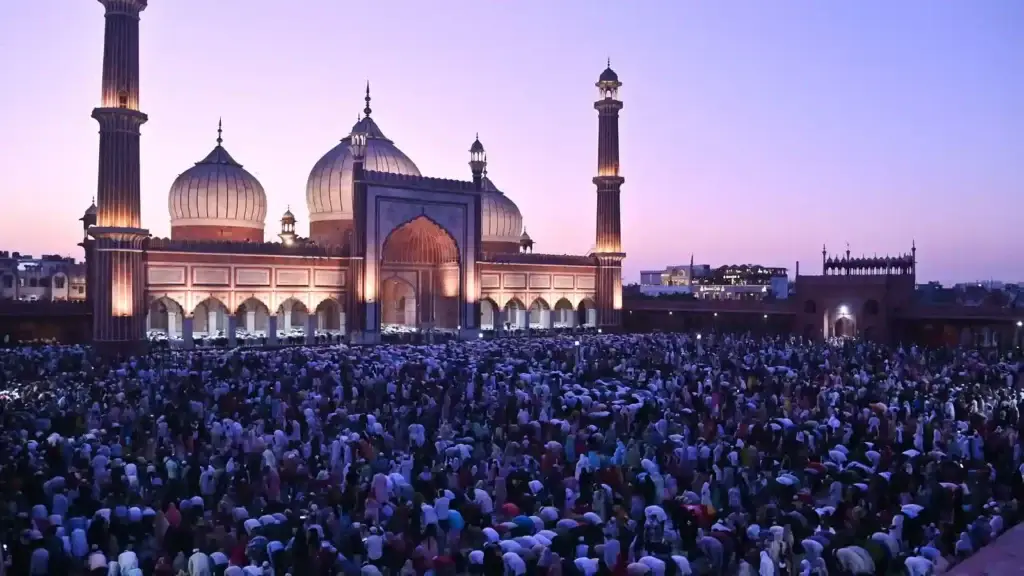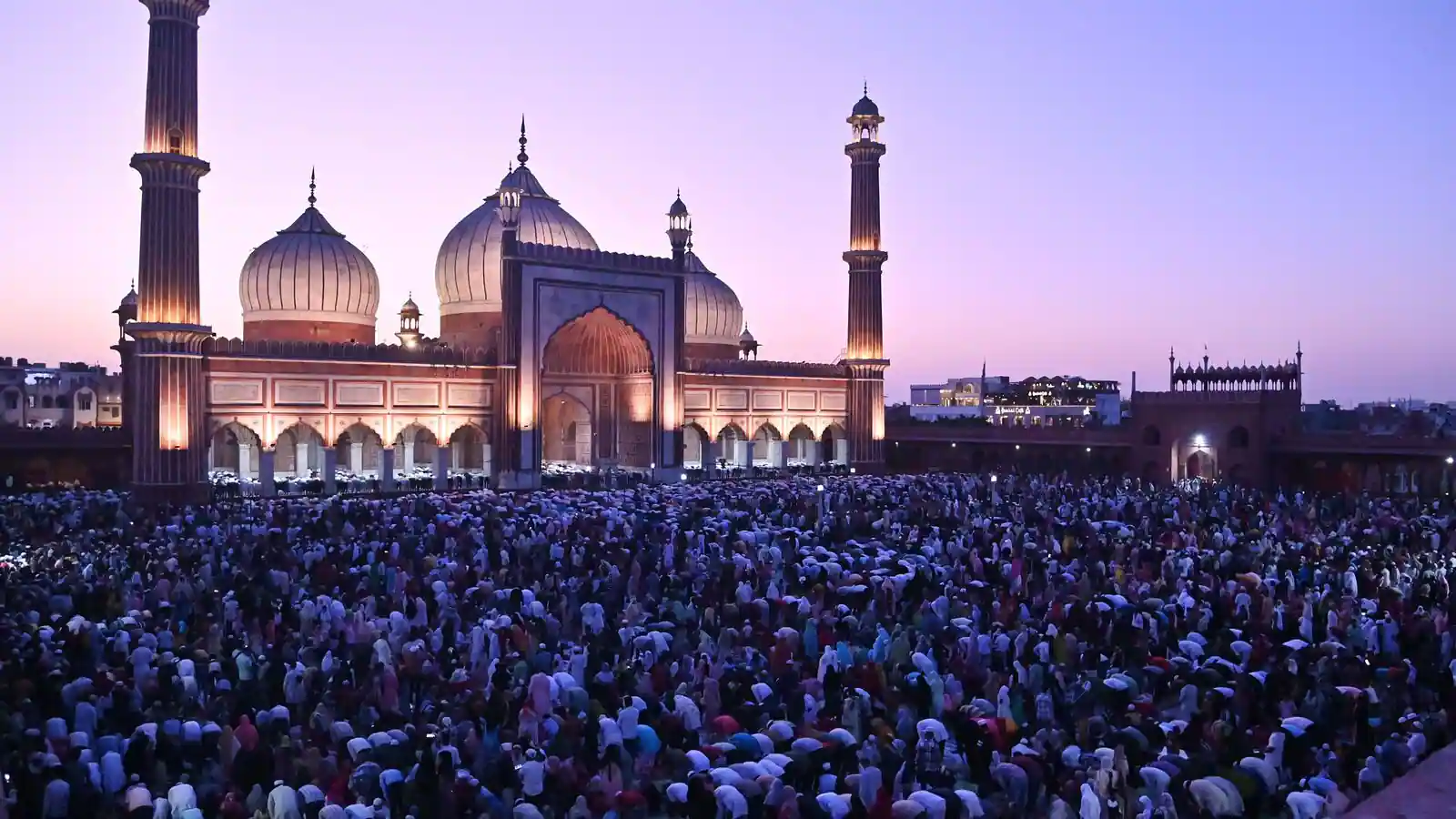LEARN FIVE PILARS OF ISLAM
The Five Pillars of Islam
The Five Pillars of Islam form the core framework of a Muslim’s faith and practice. These pillars are Shahada (faith), declaring the oneness of Allah and the prophethood of Muhammad (peace be upon him); Salah (prayer), performing the five daily prayers to maintain a direct connection with Allah; Zakat (charity), giving a portion of one’s wealth to help those in need and support the community; Sawm (fasting), observing fast during the month of Ramadan to cultivate self-discipline and empathy; and Hajj (pilgrimage), undertaking a journey to Mecca at least once in a lifetime if financially and physically able. Together, these pillars represent the essential acts of worship and moral conduct that guide Muslims in their spiritual and daily lives.

Five Pillars of Islam
The Five Pillars of Islam form the core framework of a Muslim’s faith and practice. These pillars are Shahada (faith), declaring the oneness of Allah and the prophethood of Muhammad (peace be upon him); Salah (prayer), performing the five daily prayers to maintain a direct connection with Allah; Zakat (charity), giving a portion of one’s wealth to help those in need and support the community; Sawm (fasting), observing fast during the month of Ramadan to cultivate self-discipline and empathy; and Hajj (pilgrimage), undertaking a journey to Mecca at least once in a lifetime if financially and physically able. Together, these pillars represent the essential acts of worship and moral conduct that guide Muslims in their spiritual and daily lives.

These Kalimahs are recited to express fundamental beliefs and seek Allah’s forgiveness and protection.
Kalimah Tayyibah (The Pure Word)
Arabic: لَا إِلَهَ إِلَّا اللَّهُ مُحَمَّدٌ رَّسُولُ اللَّهِ
Translation: “There is no deity but Allah, and Muhammad is the Messenger of Allah.”
Kalimah Shahadah (The Declaration of Faith)
Arabic: أَشْهَدُ أَنْ لَا إِلَهَ إِلَّا اللَّهُ وَحْدَهُ لَا شَرِيكَ لَهُ، وَأَشْهَدُ أَنَّ مُحَمَّدًا رَّسُولُ اللَّهِ
Translation: “I bear witness that there is no deity but Allah, alone with no partners, and Muhammad is His Messenger.”
Kalimah Tamjeed (The Declaration of Glory)
Arabic: سُبْحَانَ اللَّهِ وَالْحَمْدُ لِلَّهِ وَلَا إِلَهَ إِلَّا اللَّهُ وَاللَّهُ أَكْبَرُ ولاحول ولاقوۃ الا باللہ العلی العظیم
Translation: “Glory be to Allah, and praise be to Allah; there is no deity but Allah, and Allah is the Greatest.”
Kalimah Tawheed (The Declaration of Oneness)
Arabic: لَا إِلَهَ إِلَّا اللَّهُ وَحْدَهُ لَا شَرِيكَ لَهُ، لَهُ الْمُلْكُ وَلَهُ الْحَمْدُ يُحْيِي وَيُمِيتُ وَهُوَ حَيٌّ لَا يَمُوتُ، بِيَدِهِ الْخَيْرُ، وَهُوَ عَلَىٰ كُلِّ شَيْءٍ قَدِيرٌ
Translation: “There is no deity but Allah, alone with no partners. His is the dominion and His is the praise. He gives life and causes death, and He is Ever-Living and does not die. In His hand is all good, and He has power over all things.”
Kalimah Istighfar (The Declaration of Forgiveness)
Arabic: استغفر اللہ رب من کل ذنب واتوب الیہ
Translation: “I seek forgiveness from Allah, my Lord, from every sin and turn to Him in repentance.”
Kalimah Radde Kufr (The Rejection of Disbelief)
Arabic: اللَّهُمَّ إِنِّي أَعُوذُ بِكَ أَنْ أُشْرِكَ بِكَ شَيْئًا وَأَنَا أَعْلَمُ بِهِ وَأَسْتَغْفِرُكَ لِمَا لَا أَعْلَمُ بِهِ، تُبْتُ عَنْهُ وَبَرِئْتُ ؐمن الکفر والشرک والکذب والغیبۃ والفواحش والبھتان المعاصی کلھا اسلمت وآمنت واقول حق لاالہ الااللہ محمد الرسول اللہ
Translation: “O Allah, I seek refuge in You from associating anything with You knowingly, and I ask Your forgiveness for what I do not know. I repent from it and disassociate myself from it.”

Deepen Your Understanding of Islam
Explore the core teachings of Islam with our comprehensive Islamic Studies program. This course covers essential topics such as the Five Pillars of Islam, Six Kalimahs, and fundamental Hadiths, providing a solid foundation for your faith and practice.

Build a Strong Spiritual Foundation
Learning about Islam's principles and teachings enhances your connection with your faith. Understanding Islamic values helps you apply these teachings to your daily life, fostering a deeper spiritual connection and a more meaningful practice.

Flexible Online Learning at Your Pace
Join our online Islamic Studies classes to learn at your convenience. Whether you are a beginner or looking to deepen your knowledge, our experienced instructors offer personalized guidance from the comfort of your home.
These Hadiths are foundational teachings that cover various aspects
of Islamic ethics, behavior, and spirituality.
Hadith 1
Arabic: «إنما الأعمال بالنيات، وإنما لكل امرئ ما نوى»
Translation: “Actions are judged by intentions, and every person will be rewarded according to their intention.”
Hadith 2
Arabic: «من لا يُؤثِرْ الناسَ فليس منا»
Translation: “He who does not show preference to people is not from us.”
Hadith 3
Arabic: «الدين النصيحة، قلنا: لمن؟ قال: لله ولرسوله ولأئمة المسلمين وعامتهم»
Translation: “Religion is sincerity. We asked, ‘To whom?’ He replied, ‘To Allah, His Messenger, the leaders of the Muslims, and their common folk.'”
Hadith 4
Arabic: «من لا يُحِبُّ أن يُحِبَّ الناسَ، فلا يحب أن يُحِبَّ اللهُ»
Translation: “He who does not love people does not love Allah.”
Hadith 5
Arabic: «استفت قلبك، وإن أفتوك»
Translation: “Consult your heart, even if others give you a fatwa.
Hadith 6
Arabic: «لا يؤمن أحدكم حتى يحب لأخيه ما يحب لنفسه»
Translation: “None of you truly believes until he loves for his brother what he loves for himself.”
Hadith 7
Arabic: «من لا يرحم الناس لا يرحمه الله»
Translation: “He who does not show mercy to people will not receive mercy from Allah.”
Hadith 8
Arabic: «طلب العلم فريضة على كل مسلم»
Translation: “Seeking knowledge is an obligation upon every Muslim.”
Hadith 9
Arabic: «من غش فليس منا»
Translation: “He who deceives is not one of us.”
Hadith 10
Arabic: «لا يدخل الجنة من كان في قلبه مثقال حبة من خردل من كبر»
Translation: “He will not enter Paradise who has an atom’s weight of arrogance in his heart.”
Hadith 11
Arabic: «إن الله لا ينظر إلى صوركم ولا إلى أجسامكم ولكن ينظر إلى قلوبكم وأعمالكم»
Translation: “Allah does not look at your appearances or your bodies, but He looks at your hearts and your deeds.”
Hadith 12
Arabic: «من لا يشكر الناس لا يشكر الله»
Translation: “He who does not thank people, does not thank Allah.”
Hadith 13 Arabic: «إنما بعثت لأتمم مكارم الأخلاق»
Translation: “I have been sent to perfect good character.
Hadith 14
Arabic: «من صبر صبر الله عليه»
Translation: “He who is patient, Allah will grant him patience.”
Hadith 15
Arabic: «المؤمن مرآة المؤمن»
Translation: “A believer is the mirror of another believer.”
Hadith 16
Arabic: «من لا يشكر الناس لا يشكر الله»
Translation: “He who does not thank people, does not thank Allah.”
Hadith 17
Arabic: «أحب الناس إلى الله أنفعهم»
Translation: “The most beloved people to Allah are those who are most beneficial to others.”
Hadith 18
Arabic: «احفظ الله يحفظك»
Translation: “Preserve Allah’s rights and He will preserve you.”
Hadith 19
Arabic: «كفى بالمرء كذبا أن يحدث بكل ما سمع»
Translation: “It is enough for a person to be considered a liar if he tells everything he hears.”
Hadith 20
Arabic: «من لا يرحم الناس لا يرحمه الله»
Translation: “He who does not show mercy to people will not receive mercy from Allah.”
Hadith 21
Arabic: «من لم يتب قبل أن يأتيه الموت فقد خاب»
Translation: “He who does not repent before death comes to him has failed.”
Hadith 22
Arabic: «من لا يشكر الناس لا يشكر الله»
Translation: “He who does not thank people, does not thank Allah.”
Hadith 23
Arabic: «إنما العلم بالتعلم»
Translation: “Knowledge is acquired through learning.”
Hadith 24
Arabic: «من لا يرحم الناس لا يرحمه الله»
Translation: “He who does not show mercy to people will not receive mercy from Allah.”
Hadith 25
Arabic: «من صبر صبر الله عليه»
Translation: “He who is patient, Allah will grant him patience.”
Hadith 26
Arabic: «من لا يحمد الله لا يستحق الحمد»
Translation: “He who does not praise Allah does not deserve praise.”
Hadith 27
Arabic: «البر لا يبلى»
Translation: “Goodness does not wear out.”
Hadith 28
Arabic: «العلم نور»
Translation: “Knowledge is light.”
Hadith 29
Arabic: «من لا يرحم الناس لا يرحمه الله»
Translation: “He who does not show mercy to people will not receive mercy from Allah.”
Hadith 30
Arabic: «إن الله يحب إذا عمل أحدكم عملا أن يتقنه»
Translation: “Allah loves that when one of you does a job, he should perfect it.”
Hadith 31
Arabic: «الوقار في الصلاة»
Translation: “Dignity is in prayer.”
Hadith 32
Arabic: «الراحمون يرحمهم الرحمن»
Translation: “The merciful are shown mercy by the Most Merciful.”
Hadith 33
Arabic: «من كتم علما علمه ألجم بلجام من نار»
Translation: “He who hides knowledge will be branded with a bridle of fire.”
Hadith 34
Arabic: «المسلم من سلم المسلمون من لسانه ويده»
Translation: “A Muslim is one from whose tongue and hand other Muslims are safe.”
Hadith 35
Arabic: «الصدقة تطفئ الخطيئة كما يطفئ الماء النار»
Translation: “Charity extinguishes sin as water extinguishes fire.”
Hadith 36
Arabic: «من لا يحمد الله لا يستحق الحمد»
Translation: “He who does not praise Allah does not deserve praise.”
Hadith 37
Arabic: «المؤمنون لا يظلمون ولا يظلمون»
Translation: “Believers do not oppress others nor are they oppressed.”
Hadith 38
Arabic: «الصبر من الإيمان كالشعر من الرأس»
Translation: “Patience is from faith like the head is to the body.”
Hadith 39
Arabic: «من لم يتب قبل أن يأتيه الموت فقد خاب»
Translation: “He who does not repent before death comes to him has failed.”
Hadith 40
Arabic: «إياكم والجلوس على الطرقات»
Translation: “Avoid sitting in the pathways.”
These Hadiths are foundational teachings that cover various aspects of Islamic ethics, behavior, and spirituality.
Register for 3 Days Free Trial
The Al-Haram Online Quran Academy will provide access to all of its premium services including lesson videos, syllabus and qualified Quran teacher with your own selected time during trial classes.

